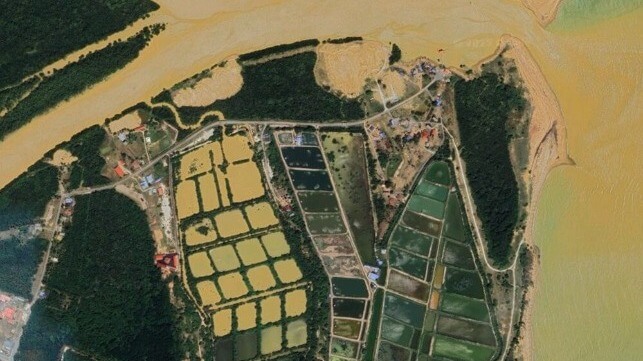Malaysia Fast-Tracks Investment in its Shipbuilding Sector
Malaysia Invests $18 Billion in Shipbuilding Expansion

Malaysia is making significant strides in its shipbuilding industry, highlighted by two major investment agreements reached last week. Pahang State is leading the charge with the signing of a lease for the Tanjung Agas Hybrid Shipyard Complex in Pekan, a coastal town on Peninsular Malaysia. This ambitious $18 billion project aims to transform the region into a maritime hub, with construction set to commence in eight months.
Pahang’s Ambitious Shipyard Development
The Tanjung Agas Hybrid Shipyard Complex will be developed in three phases across a sprawling 1,000-acre site. The first phase will focus on establishing a green vessel recycling facility, which aims to promote sustainable practices within the maritime sector. Following this, the second phase will introduce a shipbuilding center, offering comprehensive ship construction and maintenance services. The final phase will see the construction of oil and gas storage facilities, further diversifying the complex’s offerings.
Port of Tanjung Pelepas Successfully Completes Simultaneous LNG Bunkering
Wan Rosdy, the Head of Pahang State, emphasized the project’s significance, stating, “With the establishment of the shipyard complex, Pahang will emerge as a regional maritime hub, providing competitive services in shipbuilding, green ship recycling, and oil and gas.” This initiative is expected to bolster the local economy and create numerous job opportunities in the maritime sector.
In addition to the Tanjung Agas project, Pahang is also advancing the Kuantan Maritime Hub (KMH) in the Gebeng industrial area, located approximately 35 miles north of Pekan. This $500 million project, developed by Muhibbah Engineering, is set for completion by 2034 and will cover a 500-acre site, with portions reclaimed from the sea. The KMH is designed to accommodate a variety of industries, including commercial shipbuilding, ship repair, and defense training.
Strategic Investments for Global Competitiveness
These flagship projects are crucial for Malaysia’s long-term position in the global shipbuilding market, according to Sikh Shamsul Ibrahim, CEO of the Malaysian Investment Development Authority. He noted the importance of remaining competitive against lower-cost shipyards in neighboring countries like Vietnam and Indonesia. To enhance productivity, he advocated for a shift towards local robotic manufacturing, which could lead to the development of automated systems tailored for the Malaysian shipbuilding landscape.
As of June, the Malaysian Investment Development Authority reported over $230 million in approved investments for the shipbuilding and repair sector, indicating a robust interest from private investors. This sustained investment reflects confidence in Malaysia’s potential to become a key player in the maritime industry, as it seeks to innovate and adapt to the evolving global market.
